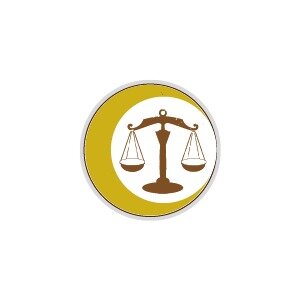Best Energy Regulatory Law Lawyers in Kumasi
Share your needs with us, get contacted by law firms.
Free. Takes 2 min.
List of the best lawyers in Kumasi, Ghana
About Energy Regulatory Law in Kumasi, Ghana
Energy regulatory law in Kumasi, Ghana, pertains to the governance, control, and oversight of the energy sector, including electricity, renewable energy, petroleum, and natural gas. The primary purpose of this field of law is to ensure the efficient, safe, and fair generation, distribution, and consumption of energy resources within the region. Regulatory frameworks seek to balance the needs of consumers, investors, and the environment, while aligning with national energy policies. In Kumasi, as in the rest of Ghana, the Energy Commission, the Public Utilities Regulatory Commission (PURC), and the Ministry of Energy play crucial roles in establishing guidelines, issuing licenses, and monitoring compliance.
Why You May Need a Lawyer
You may require the expertise of an energy regulatory lawyer in Kumasi for a variety of reasons. Common situations include resolving disputes with utility providers, navigating complex licensing and permit requirements, negotiating power purchase agreements, addressing environmental compliance issues, or investing in new energy projects. Businesses often consult energy lawyers when entering into joint ventures, acquiring energy assets, or dealing with government agencies. Individuals may need legal help to resolve billing issues, access compensation for service outages, or challenge unfair rates. A qualified lawyer can help interpret regulations, represent your interests, and ensure compliance with all applicable laws.
Local Laws Overview
Key aspects of energy regulatory law in Kumasi are shaped by national legislation coupled with local implementation. The principal legal instruments include the Energy Commission Act, 1997 (Act 541), which establishes the Energy Commission, and the Public Utilities Regulatory Commission Act, 1997 (Act 538), which governs PURC. These bodies are responsible for setting technical standards, licensing operators, and regulating service tariffs. The Renewable Energy Act, 2011 (Act 832), also plays a significant role as Kumasi seeks to diversify energy sources. Local regulations emphasize safety, reliable supply, environmental protection, and consumer protection. Compliance with building codes, environmental impact assessments, and renewable energy incentives are also significant considerations in Kumasi.
Frequently Asked Questions
What is the role of the Energy Commission in Kumasi?
The Energy Commission is responsible for the regulation and management of Ghana’s energy resources. In Kumasi, it issues licenses, sets technical standards, and oversees compliance for electricity, natural gas, and renewable energy projects.
Do I need a license to operate an energy business in Kumasi?
Yes, any individual or company involved in the generation, transmission, distribution, or sale of energy in Kumasi must obtain the necessary licenses from the Energy Commission before commencing operations.
How are utility rates determined for electricity in Kumasi?
The Public Utilities Regulatory Commission (PURC) determines utility rates through periodic reviews, taking into account energy generation costs, infrastructure investments, and consumer interests to ensure fair pricing.
What should I do if I have a dispute with an energy provider?
You can first contact the provider to attempt resolution. If the dispute remains unresolved, you may file a complaint with the PURC. Legal assistance may be beneficial for more complex cases or appeals.
Are there incentives for using renewable energy in Kumasi?
Yes, under the Renewable Energy Act, there are several incentives, including feed-in tariffs, tax exemptions, and grants for renewable energy projects, subject to regulatory approval.
What environmental regulations must energy projects in Kumasi follow?
Energy projects must comply with the Environmental Protection Agency (EPA) requirements, including conducting Environmental Impact Assessments (EIA) before project approval and ongoing monitoring during operation.
Can I install solar panels on my property in Kumasi?
Yes, individuals and businesses can install solar panels, but installations must meet safety and technical standards as specified by the Energy Commission. Some large-scale installations may require specific permits.
How can I ensure my energy business is compliant with all regulations?
It is essential to stay updated with all applicable laws, regulations, and standards issued by the Energy Commission, PURC, and other relevant authorities. Consulting with an energy regulatory lawyer can help ensure ongoing compliance.
Is electricity theft a legal issue in Kumasi?
Yes, electricity theft is prohibited under Ghana’s laws and can result in criminal charges, fines, and disconnection from the grid. It is crucial to report any illegal connections to the authorities.
What legal remedies are available for power outages or service interruptions?
Consumers may file complaints with their service provider or the PURC. In cases of significant loss or harm, legal action for damages may be pursued, especially if negligence by the utility provider is established.
Additional Resources
If you need further information or assistance regarding energy regulatory matters in Kumasi, consider contacting the following resources or authorities:
- Energy Commission of Ghana - For licensing, regulatory guidance, and technical standards.
- Public Utilities Regulatory Commission (PURC) - For consumer protection, rate reviews, and dispute resolution.
- Ministry of Energy - For policy updates and sector development initiatives.
- Environmental Protection Agency (EPA) - For environmental compliance and assessments.
- Kumasi Metropolitan Assembly (KMA) - For local permits, building codes, and municipal regulations.
- Accredited energy sector lawyers and law firms based in Kumasi.
Next Steps
If you require legal assistance with energy regulatory matters in Kumasi, start by clearly identifying your specific concern or legal need. Gather any relevant documents, such as licenses, contracts, or correspondence with energy providers. Next, schedule a consultation with an experienced energy regulatory lawyer who practices in Kumasi. During the consultation, discuss your options, seek advice on compliance or dispute resolution, and clarify fees and processes. Be proactive in following up with authorities or representatives and keep records of all communications. Taking these steps will help you address your legal needs effectively and ensure that your rights and interests are protected.
Lawzana helps you find the best lawyers and law firms in Kumasi through a curated and pre-screened list of qualified legal professionals. Our platform offers rankings and detailed profiles of attorneys and law firms, allowing you to compare based on practice areas, including Energy Regulatory Law, experience, and client feedback.
Each profile includes a description of the firm's areas of practice, client reviews, team members and partners, year of establishment, spoken languages, office locations, contact information, social media presence, and any published articles or resources. Most firms on our platform speak English and are experienced in both local and international legal matters.
Get a quote from top-rated law firms in Kumasi, Ghana — quickly, securely, and without unnecessary hassle.
Disclaimer:
The information provided on this page is for general informational purposes only and does not constitute legal advice. While we strive to ensure the accuracy and relevance of the content, legal information may change over time, and interpretations of the law can vary. You should always consult with a qualified legal professional for advice specific to your situation.
We disclaim all liability for actions taken or not taken based on the content of this page. If you believe any information is incorrect or outdated, please contact us, and we will review and update it where appropriate.










